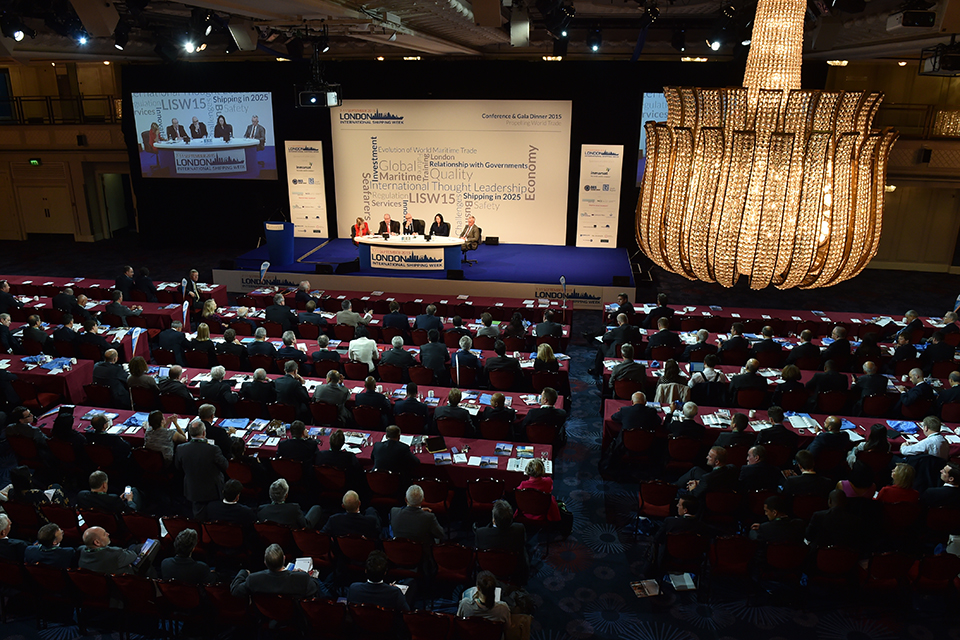Where shipping prospers it adds to the wealth of nations
The best way we can support the shipping industry is by supporting the free operation of the market.

Introduction
Good afternoon.
It’s a real pleasure to be here at the London International Shipping Week conference (10 September 2015), and to have the honour of meeting so many leaders from the international maritime sector.
Speaking as the politician on the panel, it is not often that I get a chance to be provocative, to float ideas, and, I hope, to generate debate.
But I know this audience will settle for nothing less.
So I trust you will take my speech in that spirit.

The free market
Adam Smith wrote his book, the Wealth of Nations, to explain how countries prosper through the operation of free markets.
And the example he gave of an industry that is characterised by free market principles is the example of international shipping.
He wrote:
As by means of water-carriage a more extensive market is opened to every sort of industry… So it is upon the sea-coast that industry of every kind begins to improve.
I agree with Adam Smith, that sea trade is the primary example of the principle of the free market.
Shipping is the original risk-taking private enterprise.
It works best when it is allowed to work on its own terms.
And where it prospers, it adds to the wealth of nations.
So should governments lend support to the shipping sector?
Yes, where it is right to do so.
And should governments participate in their domestic sectors?
Only when doing so brings real gain.
Consider the sophistication of the modern shipping trade.
With its complex supply chains, its just-in-time logistics, the endless movement of millions of containers around the globe.
No government could design such a system, let alone manage it or improve on it.
Modern sea trade is the vindication of Adam Smith’s theory of the invisible hand.
And it has thrived because it is protected from many of the distortions created by overzealous government.
This is as true at a global level as at a national level.
In the UK, our ports are the foundation of our national economy.
So we need them to be among the most efficient and productive in the world.
And in recent years, they have received huge capital investment in order to maintain that status.
Yet all of this has been achieved at no net cost to the tax payer.
Where we don’t have to get involved, we won’t.
And where we can cut regulation, we will.
Over the last 5 years we’ve saved business £10 billion through cutting unnecessary regulation.
Not by imposing our own decisions.
But by listening to the ideas and suggestions of industries and businesses themselves.
Over the next 5 years, we will cut another £10 billion-worth.
This will be the first time in modern history that a government has both reduced red tape in its first term, and then continued those reductions in its second term.
So my position is clear.
The best way we can support the shipping industry is by supporting the free operation of the market.
The government’s role
But that doesn’t mean the government bears no responsibility towards shipping, or for the effects of shipping on our shores and around the world.
Where the market is imperfect, where challenges are too great for the industry alone, those are the areas in which the government and the industry should work together; to design regulation that enables and protects competition, that protects the marine environment from pollution, and that keeps shipping secure.
And even here, intervention should be proportionate, with government and industry working in tandem.
That partnership approach has been central to the Maritime Growth Study, published this week.
The report makes clear that government and industry must work in partnership for the UK maritime sector to remain competitive in a global market.

Emily Maitlis, Robert Goodwill, Koji Sekimizu, Paul “Chip” Jaenichen and Fotis Karamitsos in discussion at the London International Shipping Week 2015 Conference.
International regulation
In a global market any regulation that proves necessary should take into account the international nature of the maritime sector.
Radically different rules for different parts of the world seldom makes sense.
It can lead to perverse incentives, inefficiency, and increased cost.
So here, too, my position is clear.
I believe that the International Maritime Organization (IMO) is the right body to regulate the world’s maritime industries.
The IMO has the legitimacy and the authority to oversee the sector.
It should be free to regulate without fear or prejudice.
And while action from regional bodies to open world markets and support free trade should be welcomed, it is through global standards that we can provide a level playing field and avoid the distortions of regionally-derived rules.

Conclusion
Successful world trade matters to us all.
The principles Adam Smith identified remain my guiding principles.
To back shipping, we must back the free market.
But I also believe in the free exchange of ideas.
And this speech has been delivered in that spirit.
I am very happy to take your questions.
Thank you